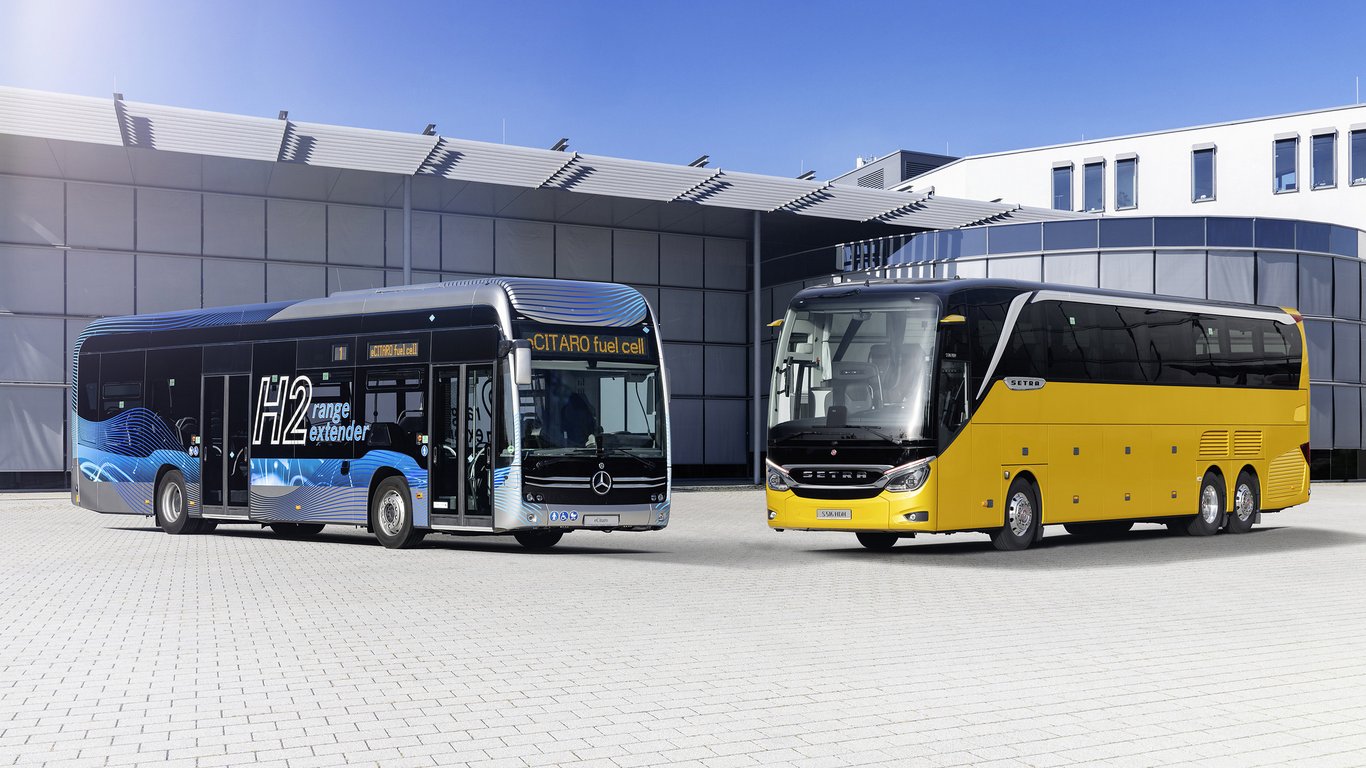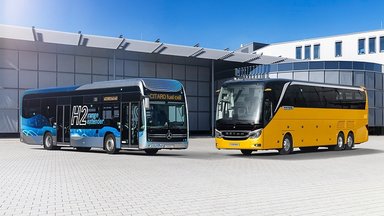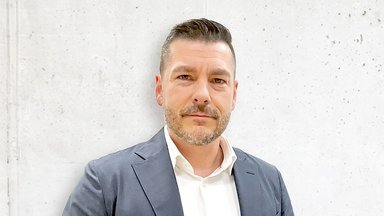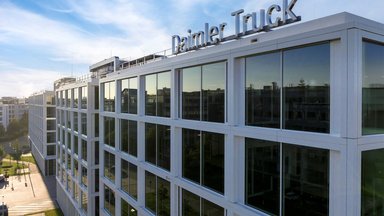
Daimler Buses sets itself ambitious goals for the future and intends to further expand market leadership
Download

Daimler Buses sets itself ambitious goals for the future and intends to further expand market leadership
Daimler Buses sets itself ambitious goals for the future and intends to further expand market leadership Manufacturer intends to strengthen competitiveness over the long term Aims for eight percent adjusted return on sales from 2025, and nine percent by 2030, under favorable market conditions, for investments into the future The plans are for the company to become more profitable even under less than ideal economic conditions…
Daimler Buses sets itself ambitious goals for the future and intends to further expand market leadership
- Manufacturer intends to strengthen competitiveness over the long term
- Aims for eight percent adjusted return on sales from 2025, and nine percent by 2030, under favorable market conditions, for investments into the future
- The plans are for the company to become more profitable even under less than ideal economic conditions
- Consistent expansion of the e-bus portfolio and service offering
- Pressing ahead with shared e-drivetrain, components and technologies in the Daimler Truck Group
- Till Oberwörder, CEO Daimler Buses: “The transformation of our industry is in full swing and demand for environmentally friendly means of transport is increasing continuously. We can make the world more sustainable with locally CO2-neutral buses and thus make an important contribution to mitigating climate change. We are firmly convinced that this is the ‘decade of the bus’. We intend to make the best possible use of opportunities opening up and, from a position of strength, make our mark on the transformation with our products and services like no other.”
- Daimler Buses’ 2023 results with a significant rise in adjusted return on sales to 4.7 percent
Leinfelden-Echterdingen / Madrid – Daimler Buses has set itself ambitious goals for the future. The company is already the leader in all its global core markets and wants to further expand on this position by 2030. Furthermore, the manufacturer aims to achieve an adjusted return on sales of nine percent by the end of the decade, assuming favorable market conditions. Daimler Buses plans to reach eight percent by as early as 2025. The plans are for the company to become more profitable even in a less than ideal market environment. Most of all, this is intended to provide the manufacturer with the means to shoulder the necessary investments relating to the transformation and to strengthen its competitiveness over the long term.
Alongside consistent expansion of the e-portfolio, the company is planning to align its offering of services even more closely to changing customer needs. Furthermore, the manufacturer intends to drive forward the digitalization of products and processes to create further added value for customers and to boost efficiency within the company. Implementation of all measures will be closely coordinated and make a contribution to a holistic, customer-focused strategy. This was announced by Till Oberwörder, CEO Daimler Buses, today at an event held by the manufacturer in Madrid.
Till Oberwörder: “The transformation of our industry is in full swing and demand for environmentally friendly means of transport is increasing continuously. We can make the world more sustainable with locally CO2-neutral buses and thus make an important contribution to mitigating climate change. We are firmly convinced that this is the ‘decade of the bus’. We intend to make the best possible use of the opportunities opening up and, from a position of strength, make our mark on the transformation with our products and services like no other.”
Bus traffic expected to grow – focus increasingly on CO2-neutral vehicles
The significance of bus travel is expected to increase around the world over the next few years. For instance, the Organisation for Economic Co-operation and Development (OECD) assumes that demand for public mobility by bus will increase by a total of around ten percent in Europe and Latin America between 2019, i.e. from the level prior to the Covid-19 pandemic, and 2030.[1] Public local transportation with city buses is expected to be the strongest driver. In this context, the focal point will continue to shift significantly towards locally CO2-neutral buses. The European Union, for instance, established the corresponding specifications at the beginning of 2024: at least 90 percent of all new city bus purchases by a fleet operator must consist of locally CO2-neutral vehicles from 2030 onwards. From 2030 onwards, plans are for the segment of intercity buses and coaches to emit 45 percent less CO2.
Buses and trucks with e-drivetrains, components and technologies that are as similar as possible
Daimler Buses is consistently pursuing a clear e-roadmap across all segments: Electrically powered city buses have already been in series production since 2018; intercity e‑buses are to follow as of the middle of the decade and electrified coaches by 2030. The manufacturer also intends to generate a significant contribution to the company’s profitability through its product development: To this end, the plans going forward are for e‑buses to increasingly share the e-drivetrain, components and technologies, wherever possible, with the electrically powered trucks of the Daimler Truck Group. Daimler Buses will announce further news on its electrification strategy at its eMobility Days at the end of the year.
Focus on e-systems and traditional services
Daimler Buses intends to further intensify the business of its wholly owned subsidiary Daimler Buses Solutions GmbH relating to e‑systems from a single source. Operators of electric fleets are increasingly requesting all-in packages. By joining forces with Daimler Buses and other partners, Daimler Buses Solutions GmbH is able to provide all necessary turnkey e-infrastructure for depots. The company is currently working on more than 20 projects and has been serving customers throughout Europe since mid-2023. As recently as the beginning of the year, Daimler Buses Solutions GmbH reached an important milestone in a major project: The construction measures for 41 charging stations with a total of 122 charging points for the bus depot of an operator of public local transport began in The Hague. The subsidiary is also expanding its portfolio to include hydrogen infrastructure for needs that will grow in the future.
Furthermore, the experts from Daimler Buses intend to further develop the strengths in traditional services, both for electrically and conventionally powered vehicles. Such services include, for example, a dense network of workshops to ensure rapid repair of vehicles that have been involved in an accident or have broken down. For this, Daimler Buses continues to rely on service points of its own throughout Europe. The plans are to increase the availability of replacement parts even further with the help of 3D-printing methods.
Digital services are to boost efficiency for customers and businesses
Daimler Buses is planning to further drive forward digital services and, in doing so, build on state-of-the-art analysis tools and artificial intelligence. For example, the company intends to create “digital twins” of its buses, across all series, in order to provide the best possible support to customers in the aftersales process. This involves complete digitalization of all buses that will be produced in the future, making it possible to identify more quickly worn parts or, in the event of damage, replacement parts.
In addition, the plans are to deploy digital bus assembly throughout production, meaning that all components of the respective series are compiled beforehand digitally and in the correct sequence for assembly, and an analysis of the individual process steps is performed. This makes it possible to optimize the assembly process beforehand to keep later process modifications to a minimum, which contributes to an even more efficient production process.
In addition, Daimler Buses is planning to introduce over-the-air updates (OTA) for its portfolio. The first vehicles are scheduled to be equipped with this technology from the middle of the decade enabling the buses to be updated to the most recent software version – quickly, simply and without a visit to the workshop.
2023 results with a significant rise in unit sales and return on sales
Daimler Buses defended its leadership in its most important core markets in Europe and Latin America in 2023. The company sold some 26,200 units around the world and is thus significantly up on the prior-year level at nine percent. The increase in unit sales was mainly due to a recovery in the European coach market, which led to a significant increase in unit sales in Europe of 26 percent to around 8,000 units. In 2023, the company generated an adjusted return on sales of 4.7, which constitutes a significant rise on the prior year (PY 0.4 percent). A positive market development and consistent implementation of efficiency measures made these results possible.
About Daimler Buses
As one of the world’s leading bus manufacturers with numerous national companies, the Daimler Truck segment Daimler Buses is responsible for the global activities of the bus and service brands Mercedes-Benz, Setra, OMNIplus and BusStore. The product range of Daimler Buses extends from coaches, intercity buses, city buses and special-purpose buses to bus chassis. In addition to the production and sales of new buses, Daimler Buses has a global service network and offers comprehensive services for all aspects of the vehicles, right through to trading in used buses.
Daimler Buses locations include Daimler Buses GmbH with numerous subsidiaries in Europe, Daimler Buses Latin America in Brazil, Daimler Buses Mexico, Daimler Coaches North America and the bus business of Mercedes-Benz Türk A.Ş in Turkey.
[1] www.itf-oecd.org/itf-transport-outlook-2023
Article assets

Daimler Buses sets itself ambitious goals for the future and intends to further expand market leadership

Daimler Buses sets itself ambitious goals for the future and intends to further expand market leadership

Daimler Buses sets itself ambitious goals for the future and intends to further expand market leadership

Fully-electric Mercedes-Benz Citaro G articulated bus complements the electric range from Daimler Buses.

Daimler Buses: Bus industry can halve local CO2 emissions in Europe from 2030

Peter Smodej
Head of Communications Product & Corporate Mercedes-Benz Trucks / Daimler Buses
peter.smodej@daimlertruck.com
+49 176 30936446

Kai Wolfer
Spokesperson Corporate Communications Daimler Buses
kai.wolfer@daimlertruck.com
+49 176 30934594






